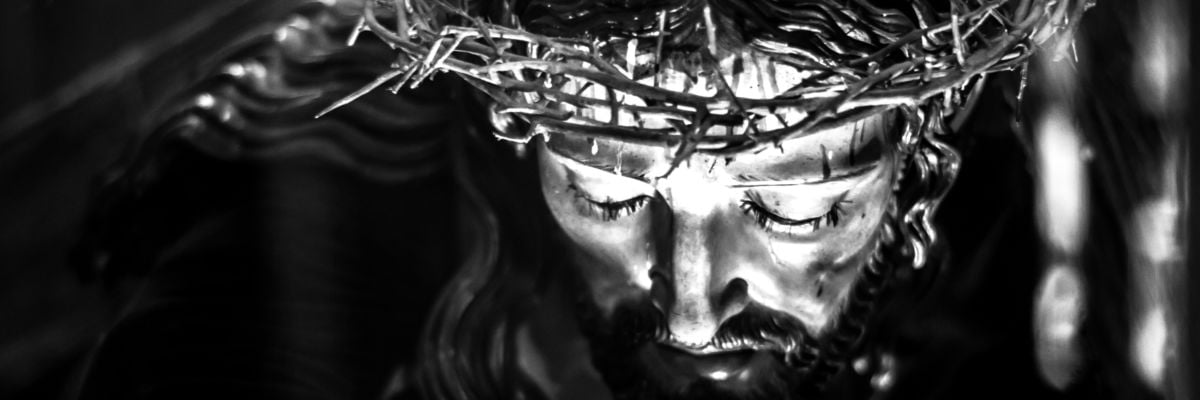
It is not hard nowadays to find gloomy and even apocalyptic expectations of the approaching collapse of the United States. The radical polarization of our culture around issues of race, economic disparity, and politics have many people predicting very dark days ahead. More fundamentally, our toxic political debates are really about profound differences in our understanding of what our world should be like and how to achieve it.
Granting there is some truth to the widespread conviction that our culture is suffering from a significant illness, is there a viable path to hope?
One popular option for finding hope amidst chaos is the Buddhist path, rooted in the claim that everything in this world is, when seen accurately, suffering. Even the most delightful and hopeful experiences are mere temporary distractions since those moments of delight will inevitably pass away, leaving us with the pain of knowing we could not hold on to them. Suffering is inescapable and universal. The Buddha’s realization that suffering is only possible because we are attached to and crave things that will inevitably bring us pain, is the key to dealing with suffering. Once we learn to relinquish all attachments, we find relief from this world of suffering.
The Stoic response to a sinking world is not entirely different. Seneca, for instance, regularly admonished his readers to find interior peace. Not only can we do very little to change the outside forces at work on us, life is much too short to obsess over it all. Time is the most valuable thing we have and we must cherish it. One must resist the illusion that we can change the raging disorder and unrest that fills the world beyond our own internal state of mind; the only thing we can truly influence.
Then there are those approaches that aim to solve our world’s problems by replacing its troubled, imperfect systems with a utopia, a world free of the evils that plague us now. Hegel’s theory of history as an evolution towards the manifestation of the Absolute Mind and the World Spirit birthed the utopian scientific and economic visions of Comte and Marx in the nineteenth century. But not only have all grand narratives of utopian paradise in this world failed, their tendency is to fail in horrifying ways. The Communist vision of a classless society and Hitler’s fascistic reading of German history and destiny led to the slaughter of millions who were deemed obstacles to attaining the Arian vision.
Utopian visions all share the same fatal flaw of attempting to build a society based on an inadequate theory of human nature and world history. In time, those inadequacies manifest themselves in grotesque and dehumanizing ways. The chilling twentieth-century dystopian novels, especially Brave New World, 1984, and Animal Farm, potently expose these failures. Most importantly, all utopian systems operate under the false assumption that human nature can be perfected in this world. Given the right political system, the idealist insists, all our problems will melt away, yielding a new world order, free from the evils of our present order.
But what if what we want most deeply is unattainable within the structures of this world? What if Buddhism is on the right track when it says there is something finally unsatisfying or disappointing in everything in this world? What if the Stoics correctly discerned that our lives are wasted if we think we can locate our happiness in our conquest of the world outside ourselves?
The Christian understanding of the human person in history includes the strengths and overcomes the weaknesses of each of these theories. The Buddhist, Stoic, and utopian worldviews each grasp parts of the truth: this world is incomplete, time is valuable, and the very structure of the human person is to hope for the fulfillment and perfection of our nature and greater justice on earth. In the words of the Second Vatican Council, the Church’s mission aims for a future salvation “which can be fully attained only in the next life” (Gaudium et Spes, 40).
In short, we Christians can’t ground our hope in the structures of this world because it is passing away (1 John 2:17). It is truly remarkable that Jesus consistently opposed uniting his life’s work with the political order, despite Satan’s efforts, as well as those of the religious and secular leaders. “My kingdom is not of this world,” Jesus insisted (John 18:36). Unlike far too many others, Jesus knew that human hope could not be grounded in the political order and that is why, when asked about paying taxes to Caesar, he agreed to the payment of taxes but carefully instructed his followers to limit the power of the political order: “Render to Caesar what is Caesar’s and to God what is God’s” (Matthew 22:21).
It is an error of tremendous proportions to confuse Catholic Faith with politics. The Church “is not to be confused with the political community and is not bound to any political system” (GS 76).
This world is a question, not an answer. All attempts to derive the answer to the human mystery from within it are doomed to failure. When our nation erodes—whenever that may be—it will have followed the path of all earthly kingdoms. Christ alone can ground the unrelenting human longing for hope.



